detail profile anatoli kotscherga

Anatoli Kotscherga
Anatoli Kocherga
atau dikenal sebagai
Riwayat Hidup
Anatoli Kotcherga (Ukrainian: Анатолій Іванович Кочерга; Born July 9, 1947), PAU, is a Ukrainian operatic bass.
He studied music at the Kiev Conservatory.
In 1971 he won a prize in the Glinka Competition, and in 1974 he won the Tchaikovsky Competition.
Shortly thereafter he was hired by the Kiev Opera.
His international career was launched in 1989, when he sang Shaklovity in the Vienna Staatsoper's Khovanshchina, conducted by Claudio Abbado.
He performed as Boris Godunov at the 1994 Salzburg Easter and Summer festivals, and he has been particularly associated with the part, singing it in Venice, Turin, Montpellier and with the Vienna Staatsoper in Japan.
He also sang Dosifey.
Other roles include the Commendatore, Sparafucile, Pistola, Banquo, and the Grand Inquisitor.
Non-operatic work includes Mussorgsky's Songs and Dances of Death, Shostakovich's 13th Symphony and Janáček's Glagolitic Mass.
He can be seen on video as Shaklovity, Dosifey, Father Varlaam (in a video featuring Matti Salminen as Boris Godunov), and the Commendatore.
Source: Article "Anatoly Kocherga" from Wikipedia in English, licensed under CC-BY-SA 3.
0.
Info Pribadi
Peran Yang Di Mainkan Anatoli Kotscherga
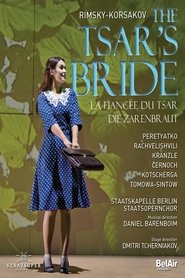 The argument is based on an...
The argument is based on an...Rimsky-Korsakov: The Tsar's Bride 2015
The argument is based on an historical case. In the suburbs of Moscow, reigned around 1571 Tsar Ivan IV, 'the Terrible'. Widowed, he is looking for a new wife for the third time. He chooses the young Marfa; she loves another man but bends to the will of the Tsar and renounces her love. From this starting plot, the Russian director Dmitri Tcherniakov retains only the frame. A live competition is organised for a virtual monarch like in a reality show called «Joe Millionaire » where competitors attempt to marry a rich man. Here, the characters become the various players of the audiovisual industry bringing an acerbic criticism of contemporary TV. Daniel Barenboim conducts the Staatskapelle Berlin, with Olga Peretyatko, Anita Rachvelishvili and Johannes Martin Kränzle. Recorded at Staatsoper, Im Schiller Theater Berlin, in October 2013.
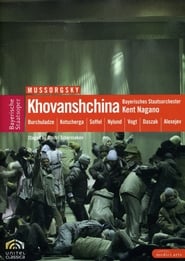 Kent Nagano superbly masters the challenges...
Kent Nagano superbly masters the challenges...Mussorgsky: Khovanshchina 2012
Kent Nagano superbly masters the challenges presented by this score, shapes the dynamics with subtle intensity, and casts the score in a mellow glow. As Marfa, the spurned lover of Ivan Khovansky‘s son Andrei, Doris Soffel unfolds such a rich palette of sonorities, from the pathos of the lower ranges to shaded discant heights, that “one is tempted to speak of a Russian mezzo”. The final chorus, which Mussorgsky did not compose, is played in the orchestrally transparent version of Igor Stravinsky – the third great Russian composer who contributed to making “Khovanshchina“ a timeless, gripping stage work. With his stripped-down sets and historicising costumes, director Dmitri Tcherniakov, one of the new voices of contemporary Russian theatre, builds a bridge to the political present. A lesson in history and music!
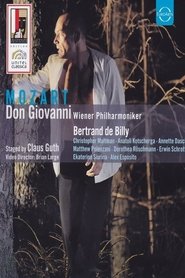 A striking interpretation of Mozarts opera...
A striking interpretation of Mozarts opera...Mozart: Don Giovanni 2008
A striking interpretation of Mozart's opera that became a sensation at the 2008 Salzburg Festival. This is not only a rethinking of the place and time of the opera, but also a deep disclosure of the characters' characters, their ambiguous inner world. A simple, at first glance, plot is turned by the creators of the play into a dynamic psychological thriller.
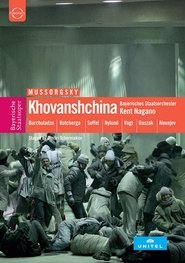 One of Modest Mussorgskys great talents...
One of Modest Mussorgskys great talents...Mussorgsky: Khovanschina 2007
One of Modest Mussorgsky's great talents was his unique ability to transpose words, psychological states, and even physical movements, into music. Kent Nagano rises magnificently to the challenges presented by this score. And Dmitri Tcherniakov's fascinating production emphasizes the timeless quality of this sombre tale of intrigue and power struggles reminiscent of a Greek tragedy, reflecting Mussorgsky's own maxim: "The past in the present - that is my task."
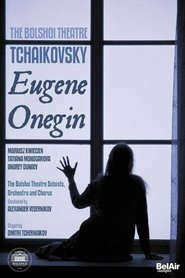 Live performance by the Bolshoi Theatre...
Live performance by the Bolshoi Theatre...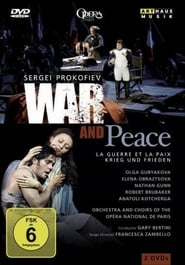 Napoleons tumultuous relations with Russia including...
Napoleons tumultuous relations with Russia including...![film Boris Godunov [Salzburger Festpielhaus] 1998 movie Boris Godunov [Salzburger Festpielhaus] 1998](https://image.tmdb.org/t/p/w185/2MnhsHMQyw0r9sxR4xab43Q6tl4.jpg)
